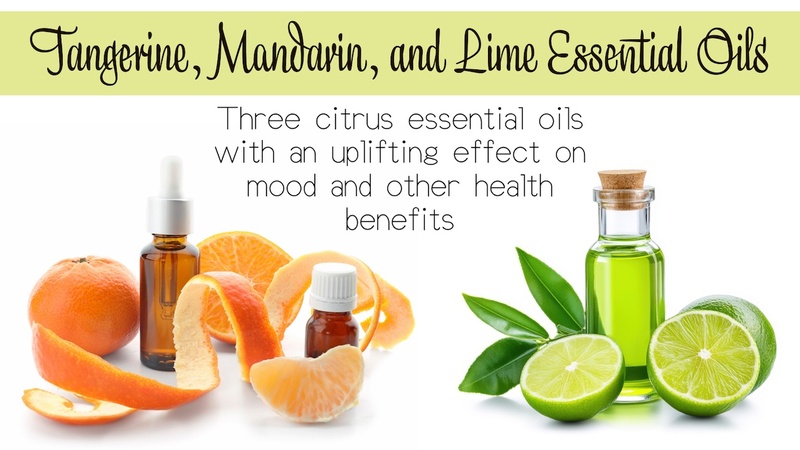
I've already covered a half-dozen members of the Citrus genus, including my last article on the two popular citrus oils neroli and bergamot. But, there are three more that I'd like to specifically address, these are the essential oils of mandarin (Citrus reticulata), tangerine (Citrus reticulata blanco), and lime (Citrus aurantifolia).
Medicinal Benefits of Mandarins and Tangerines
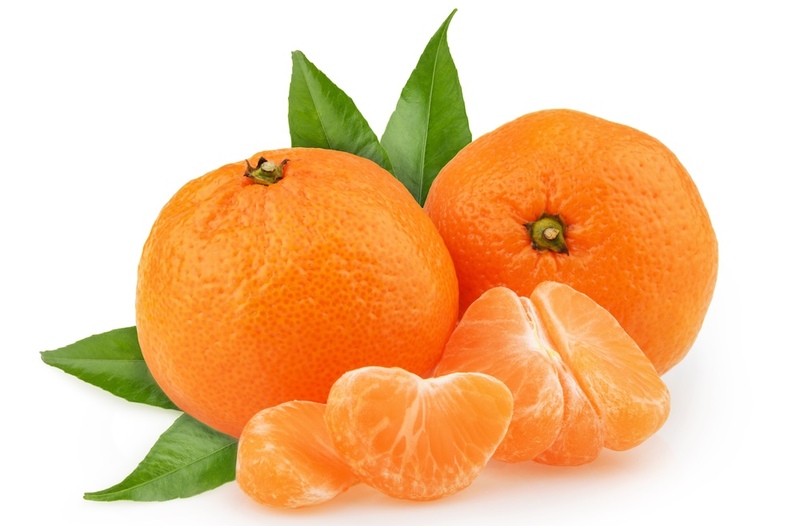 Tangerines are a variety of mandarin oranges and basically share the same properties and uses. As herbal remedies, they are used in a similar manner to oranges, which are hybrids of mandarins and pomelos (Citrus maxima).
Tangerines are a variety of mandarin oranges and basically share the same properties and uses. As herbal remedies, they are used in a similar manner to oranges, which are hybrids of mandarins and pomelos (Citrus maxima).
Tangerines are used in two forms in TCM. The first is called Qing Pi, which means “green peel.” This remedy is made from green tangerine peelings. The second is called Chen Pi, which means “aged peel.” This remedy is the dried peelings of mature tangerines. The longer the dried peelings are stored, the more potent they are considered to be.
Qing Pi
Qing Pi is bitter and acrid remedy, with a warming nature. It relieves stagnation in the digestive system associated with abdominal bloating and distention, as well as acid reflux and belching marked by a sour or rotten smell. It also eases a sense of congestion or pain under the right rib cage associated with stagnation in the liver.
Qing Pi is also used for swelling and pain in the breasts and to break up nodules and masses where there is blood stagnation. It also has emotional indications, including becoming easily agitated or distressed and frequent sighing. These are associated with the digestive symptoms, which suggest the herb may assist the gut-brain axis or vagal nerve.
Chen Pi
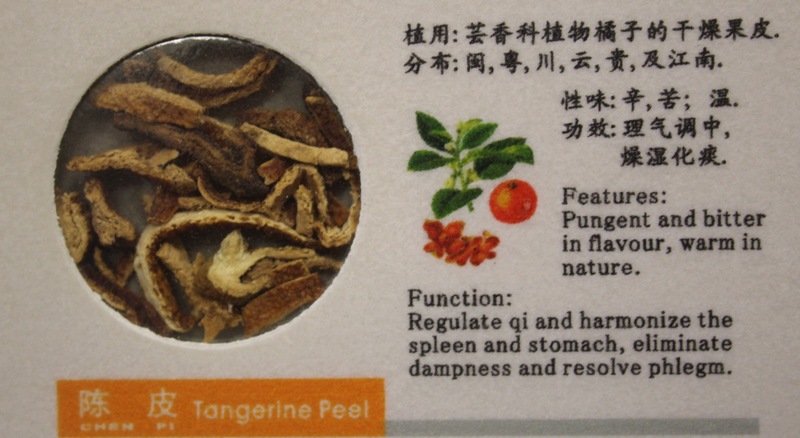 Chen Pi is also a bitter and acrid remedy, but it is cooling in nature. It is used for both the lungs and the digestive system.
Chen Pi is also a bitter and acrid remedy, but it is cooling in nature. It is used for both the lungs and the digestive system.
In the digestive system, it relieves stagnation, stimulating digestive secretions and intestinal motility. This makes it useful for gas, bloating, belching, nausea, and vomiting.
In the respiratory system, it relieves damp congestion in the lungs, acting as a decongestant and expectorant. This makes it helpful for coughs, bronchitis, and other respiratory problems where there is an excess of mucus. It may also help to dilate the bronchial passages, easing breathing and wheezing.
Qing Pi and Chen Pi are ingredients in many of the Chinese herb formulas I use for digestive and respiratory problems. However, I don’t have experience with using them as single remedies. If you want to you could try making your own Chen Pi by harvesting peelings from tree-ripened, organic tangerines, then drying them and storing them for six months or more.
Mandarin and Tangerine Essential Oils
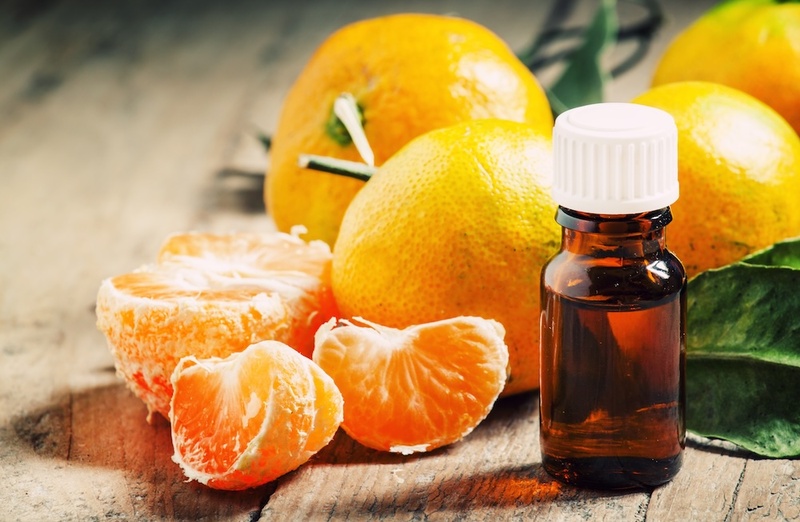
The properties and uses of red mandarin and tangerine essential oils are very similar. Both have a sweet citrus fragrance and have a calming effect on the nervous system. They are good remedies for children (or adults) who are restless, distressed, hyperactive or suffering from upset tummies. They have an uplifting effect on the emotions, promoting playfulness and a sweet, loving, or kind disposition. If you want to create a playful, happy mood, these are good oils to diffuse into the room.
They can also be used to reduce stress and ease feelings of depression. Like other citrus oils they can also be inhaled to calm down hyperactive energy and reduce hysteria. They may also aid self-awareness and self-esteem.
Using Mandarin and Tangerine Essential Oils
The essential oils of mandarin and tangerine can be applied neat (undiluted) or used in a massage lotion. They are non-toxic and non-irritating to the skin, but, they should not be used internally. They also need to be fresh and not oxidized. All cold-pressed citrus oils are prone to oxidizing and can’t be stored for long periods of time as they will eventually start to go rancid. They can also be inhaled for emotional healing purposes.
Mixed with a massage oil or lotion they can be rubbed into the skin to ease nervousness and tension and stimulate lymphatic drainage. They can be massaged over the digestive organs to help stimulate digestive secretions and motility, helping to ease colic, hiccups, gas, and bloating, and helping with the gallbladder and fat digestion. Topically, the oils can be used as skin toners or acne treatments and may help to prevent stretch marks and scarring.
Lime
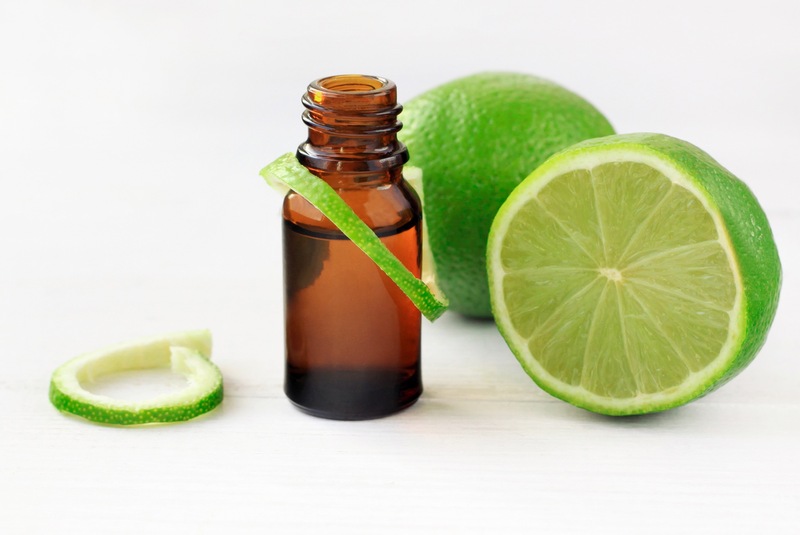 I really love the flavor and aroma of lime, especially combined with cilantro in a fresh salsa. I’m sure that limes have some of the same alkalizing and immune-enhancing properties as lemons, but I’m not aware of any specific medicinal uses for them.
I really love the flavor and aroma of lime, especially combined with cilantro in a fresh salsa. I’m sure that limes have some of the same alkalizing and immune-enhancing properties as lemons, but I’m not aware of any specific medicinal uses for them.
The essential oil of lime has a sharp and fruity citrusy aroma, and unlike oranges, tangerines, and mandarins, which have a calming, but uplifting effect, lime is more fiery and invigorating. It has a refreshing and stimulating effect which can aid mental and physical fatigue. Smelling it can help people who feel apathetic and depressed.
Applied topically, lime essential oil can help with oily skin and hair. It also helps stimulate lymphatic flow and ease lymphatic congestion. It is antiseptic and disinfectant, so it can also help with skin infections.
Lime oil is non-irritating and non-toxic and can be applied topically either neat or diluted. However, cold-pressed lime may cause phototoxicity when applied topically. Again, make sure the oil is fresh and hasn’t started to oxidize. Although it is considered safe for internal when it is highly diluted, I would avoid using it internally.
Steven's Articles
-

-
Eucommia Bark
A superior tonic that promotes kidney, structural,…
January
-

-
Goldenthread, Phellodendron, and Yellow Root
Three herbal remedies containing the infection-fighting…
-

-
Teasel
A traditional herb for healing bones and joints…
-

-
Barberry and Healthy Personal Boundaries
A thorny shrub for fighting infections and supporting…
December
-

-
The Evidence for Berberine
A yellow alkaloid found in traditional infection-fighting…
-

-
The Sensible Use of Caffeinated Herbs
Kola nuts, guarana, and yerba mate and other herbs…
-

-
The Health Benefits and Problems with Coffee
This popular caffeinated beverage can be beneficial…
October
-

-
Understanding Caffeine & Cellular Adaptation
Preserving the power of caffeine's buzz and the…
September
-

-
Horseradish
A pungent spice for aiding protein metabolism…
-

-
Banaba or Crepe Myrtle
A beautiful tree from Southeast Asia whose leaves…
August
-

-
Monkeyflowers
Flower essences to help see ourselves more clearly…
-

-
Mariposa Lilies
Strengthening the bond between mother and child…
-

-
The Noble Bay Leaf
A common kitchen herb for aiding digestion and…
-

-
Epimedium: Horny Goat Weed
A circulatory stimulant and kidney yang tonic…
July
-

-
The Medicinal and Nutritional Benefits of Apricots
A nutritious fruit and valuable medicinal seed for coughs

